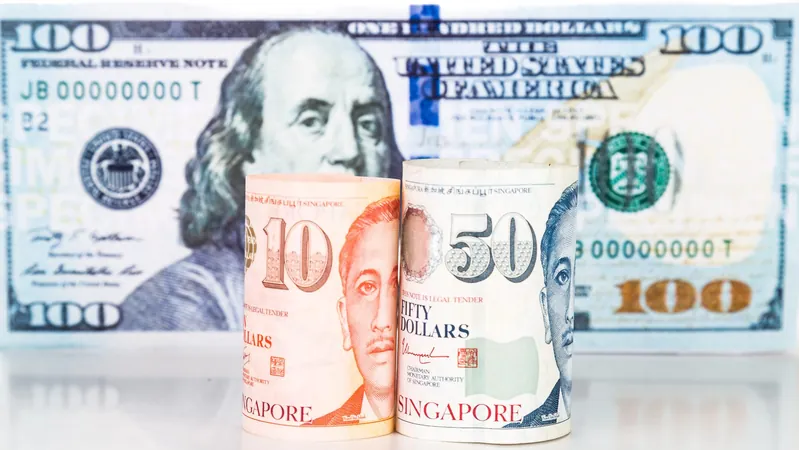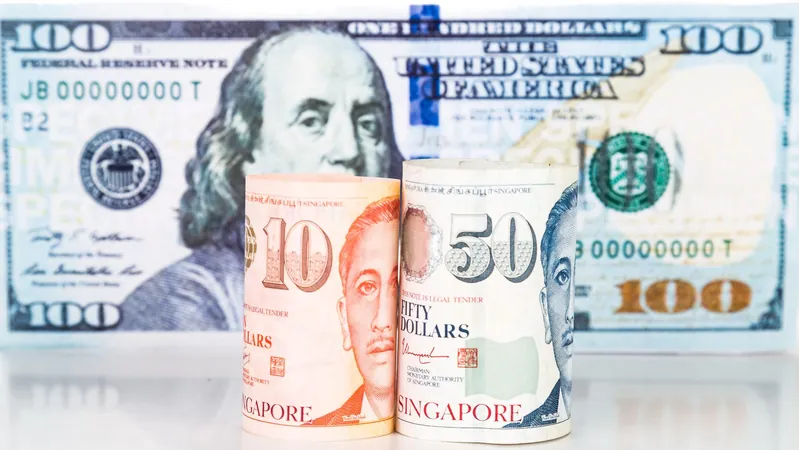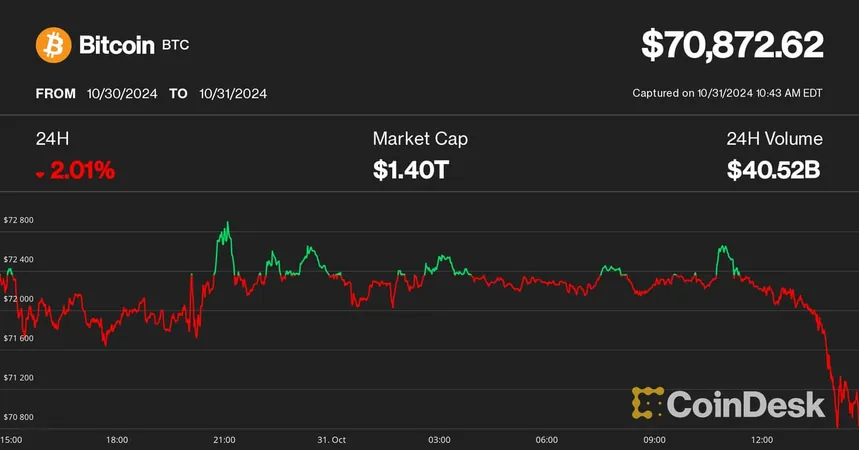
Asia Faces Currency Turmoil as US Dollar Surges Following Trump's Surprising Election Win
2024-11-08
Author: Wei
SINGAPORE: A wave of unease swept over Asian financial markets today as the Singapore dollar, Malaysian ringgit, and Thai baht experienced sharp declines. This slump came as the US dollar soared amid the burgeoning optimism surrounding Donald Trump's unexpected victory in the US presidential election.
The Singapore dollar plummeted by 1.6%, hitting a three-month low and registering its most significant single-day drop since November 2011. Market analysts are expressing concern over the potential long-term repercussions of this decline.
The Malaysian ringgit, once the leading currency performer in Southeast Asia this year, did not escape the turmoil. It dipped 1.3%, its lowest point since mid-August, as investors weighed the impact of new US tariffs that could hamper trade. A recent Reuters poll suggested that Bank Negara Malaysia (BNM) may maintain its key interest rate at 3.00%, with authorities signaling a readiness to mitigate any extreme volatility in the currency market.
Thailand's baht followed suit, falling 1.3% to a two-month low, while South Korea's won declined 1.5%, marking its lowest level since mid-April. The Indonesian rupiah, too, dropped by 0.8%, approaching a near three-month low, prompting speculations about interventions by Indonesia's central bank to stabilize the currency amid growing concerns.
Ken Cheung Kin Tai, chief Asian FX strategist at Mizuho Bank, noted that regional investors are increasingly preoccupied with the potential fallout from tariffs, particularly since many Asian economies are heavily reliant on global trade.
Analysts from MUFG highlighted that the won, Singapore dollar, ringgit, and baht could remain under pressure following Trump's win, primarily due to their vulnerability in export-driven markets and exposure to any slowdown in China’s economy. The volatile yuan and Mexican peso are highlighted as especially susceptible to the consequences of a heightened dollar and increased tariffs stemming from Trump's administration.
The stock markets across the region reacted divergingly: while Seoul's market fell by 1%, shares in Taipei rose by 1%, and Kuala Lumpur managed a gain of 0.4%. Mixed signals emanate from the stock exchanges as traders grapple with uncertainty over future market performance.
As reported by The New York Times, Donald J. Trump secured his position as the 47th president of the United States, marking a remarkable comeback after losing to Joe Biden Jr. four years earlier. His victory was solidified with a critical win in Wisconsin, clinching him over the critical 270 electoral votes threshold.
The implications of Trump's presidency have analysts predicting a rise in inflation due to his proposed tariff and immigration policies, projecting potentially higher bond yields and a stronger dollar, which could intensify pressures on trading partners like those in Asia.
The dollar index, which tracks the performance of the greenback against six major currencies, surged by 1.42%, while US Treasury yields reached multi-month peaks, indicating aggressive market reactivity to early election returns.
Now that Trump's presidency is confirmed, all eyes will be on the unfolding impact of his policies on Asian markets. Will these regional currencies continue to struggle, or is a turnaround in market sentiment on the horizon? Only time will tell as traders and investors brace themselves for the potential shifts in the geopolitical landscape.



 Brasil (PT)
Brasil (PT)
 Canada (EN)
Canada (EN)
 Chile (ES)
Chile (ES)
 España (ES)
España (ES)
 France (FR)
France (FR)
 Hong Kong (EN)
Hong Kong (EN)
 Italia (IT)
Italia (IT)
 日本 (JA)
日本 (JA)
 Magyarország (HU)
Magyarország (HU)
 Norge (NO)
Norge (NO)
 Polska (PL)
Polska (PL)
 Schweiz (DE)
Schweiz (DE)
 Singapore (EN)
Singapore (EN)
 Sverige (SV)
Sverige (SV)
 Suomi (FI)
Suomi (FI)
 Türkiye (TR)
Türkiye (TR)